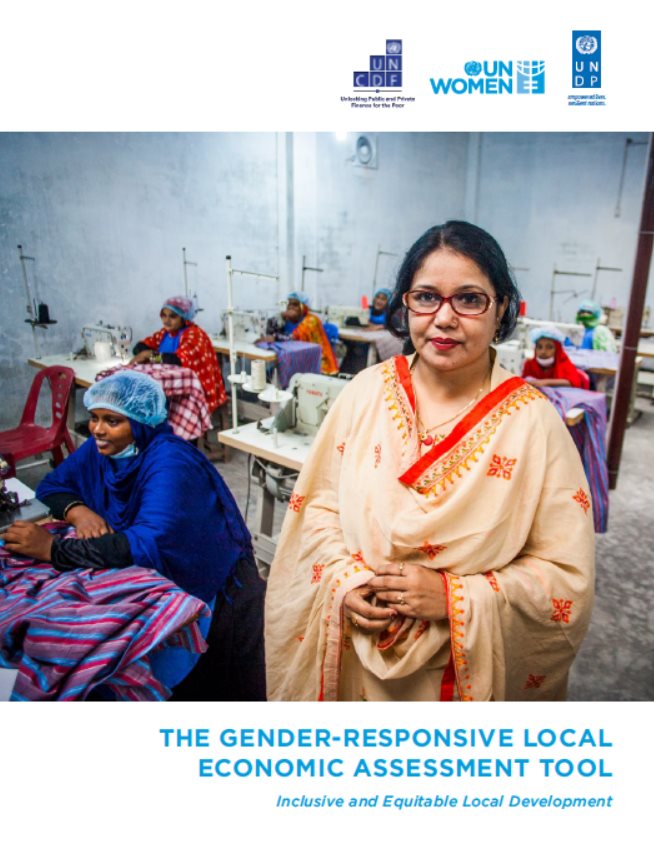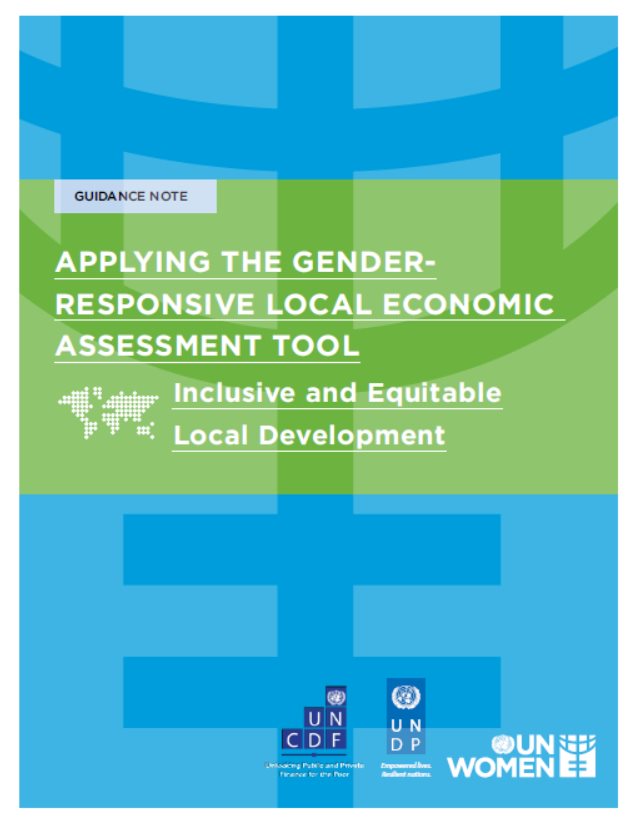Background:
Local economic assessments (LEAs) provide local authorities and partners with a robust analysis of local economic conditions that can inform economic policies and interventions. These assessments help local authorities to promote the economic, social and environmental well-being of their area, and contribute to national objectives to realize sustainable development. An assessment is fundamental to creating a local economic development strategy since it maps both past and future forces impacting development, details the structure of the economy, and captures community opinions and perceptions.
In shaping gender-responsive LEAs, local authorities take into account the specific factors influencing women’s level of engagement as workers and business owners, across different economic sectors. Such an assessment can entail mapping the area’s economic development and regeneration; women’s employment patterns and barriers to employment, education and skills; planning; housing; transport; and sport and culture, among other dimensions. The assessment may look at local socioeconomic policies and institutional contexts, including to define major bottlenecks to women’s economic empowerment.
What is a gender-responsive LEA?
A gender-responsive LEA informs policy responses aimed at accelerating local economic development in ways that are equitable and contribute to women’s economic empowerment. It provides an inventory and analysis of community assets and liabilities from a gender perspective; includes information on gender-related national, regional and local economic developments and trends; and identifies the extent to which businesses in a locality are gender-responsive in their activities and operations.
To support such assessments, the United Nations Development Programme (UNDP), UN Women and the United Nations Capital Development Fund (UNCDF) developed the Gender-Responsive LEA Tool. It assists localities in different countries to assess their readiness for gender-responsive local development. The tool also enables the integration of gender-responsive development in other strategic processes, such as the United Nations Sustainable Development Cooperation Framework, and supports technical capacity-building among local authorities, civil society organizations and key stakeholders.
A gender-responsive LEA is a written report containing qualitative and quantitative data and analysis of a local economy from a gender perspective. Data are drawn from existing reports, national policy documents and local data, where available. A comprehensive assessment is supplemented by stakeholder analysis using workshops and interviews with key individuals (women and men) with knowledge and experience of the main gender issues impacting the local economy. Such issues may involve, for example, concentrations of men and women in certain sectors of the local economy, or the social norms that hinder women’s economic participation. An assessment should be conducted with an inclusive approach that equally values and incorporates the contributions of all stakeholders, including marginalized groups, in addressing local development issues. It should promote transparency and accountability and enhance development cooperation outcomes through collaboration among civil society organizations, local governments and private sector actors. Its overarching goal is to advance gender-responsive and inclusive economic development that enhances the capacities and opportunities of all people, women and men.

